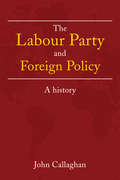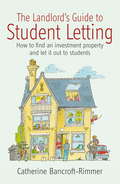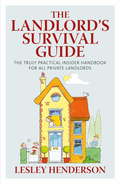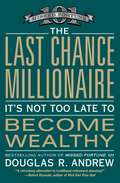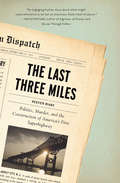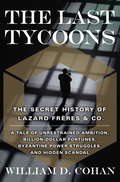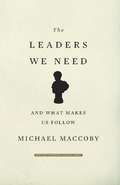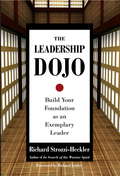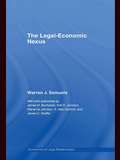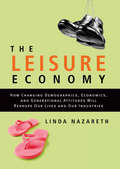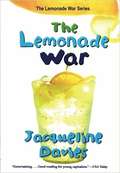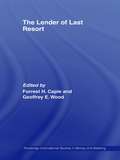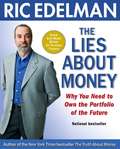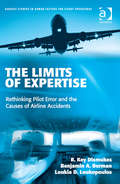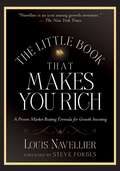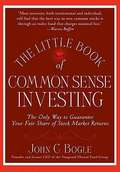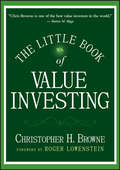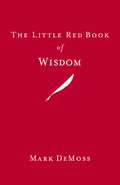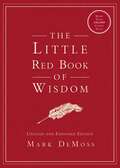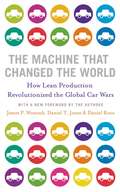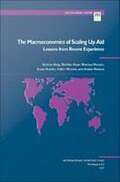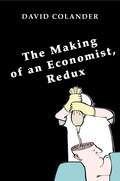- Table View
- List View
The Labour Party and Foreign Policy: A History
by John CallaghanThis book provides a penetrating new study of the Labour Party’s thinking on international relations, which probes the past, present and future of the party’s approach to the international stage. The foreign policy of the Labour Party is not only neglected in most histories of the party, it is also often considered in isolation from the party’s origins, evolution and major domestic preoccupations. Yet nothing has been more divisive and more controversial in Labour’s history than the party’s foreign and defence policies and their relationship to its domestic programme. Much more has turned on this than the generation of tempestuous conference debates. Labour’s credentials as a credible prospect for Governmental office were thought to depend on a responsible approach to foreign and defence policy. Its exclusion from office was often said to stem from a failure to meet this test, as in the 1950s. The composition of Labour Cabinets was powerfully influenced by foreign and defence considerations, as was the centralization of power and decision-making within Labour Governments. The domestic achievements and failures of these periods in office were inextricably connected to international questions. The Labour Party and Foreign Policy is recommended for undergraduate and postgraduate courses in British politics and European history.
The Landlord's Guide to Student Letting: How to find an Investment Property and Rent It Out to Students
by Catherine Bancroft-RimmerThis comprehensive book includes: sample application forms, tenancy agreements, guarantor forms, standing order mandates, notices to quit and seeking possession, together with useful addresses and organisations.Contents: 1. Why Let to Students?; 2. Buying a Property; 3. Getting your Property Ready to Let; 4. Tenancy Agreements; 5. Advertising Your Property; 6. Selecting Tenants; 7. Moving In; 8. Managing the Let; 9. Moving Out; 10. The Letting Year; Useful Contacts; Appendix 1; Appendix 2; Appendix 3; Appendix 4; Appendix 5; Appendix 6; Index.
The Landlord's Guide to Student Letting: How to find an Investment Property and Rent It Out to Students
by Catherine Bancroft-RimmerThis comprehensive book explains the nuts and bolts of letting, with a particular emphasis on letting to groups of young people studying in higher or further education. Plus: sample application forms, tenancy agreements, guarantor forms, standing order mandates, notices to quit and seeking possession, together with useful addresses and organisations.Contents: 1. Why Let to Students?; 2. Buying a Property; 3. Getting your Property Ready to Let; 4. Tenancy Agreements; 5. Advertising Your Property; 6. Selecting Tenants; 7. Moving In; 8. Managing the Let; 9. Moving Out; 10. The Letting Year; Useful Contacts; Appendix 1; Appendix 2; Appendix 3; Appendix 4; Appendix 5; Appendix 6; Index.
The Landlord's Survival Guide: The Truly Practical Insider Handbook For All Private Landlords
by Lesley HendersonThis concise but comprehensive guide is for first time - as well as established - landlords. It is divided into sections, each of which is jam-packed with detail and insider tips. Most sections will only take minutes to read (although a few earlier ones take a little more) and each section tells you exactly what you need to do - and why - to get best results. It provides advice on: viewings - how to arrange and conduct them; making a realistic rent assessment before spending any money; knowing what agents should charge and should do; advertising - how to write, where to place, and how to respond to callers - plus using the response to assess tenants; selecting tenants and closing the deal; and, deposits - why they work and how they can fail.It also offers advice on: agreeing inventories, schedules of condition, and property profiles; assured shorthold leases - what they are, the exceptions, and where to buy them for a song; ending tenancies - the easy, and the hard way; the legal responsibilities that no landlord can ignore; particular aspects about houses in multiple occupation; property maintenance - realistic costs and useful advice; and, dealing with the tax man. Each section has tips, skills, time management ideas, and problem solving advice, plus supportive guidance and helpful websites and phone numbers. If you're looking for a bit of straight talking about your investment, or you're sufficiently interested to discover how to increase your own bottom line rather than some agent's, then this is the guide for you.Contents: Lesson 1 Learning the Ropes when Buying Property; Lesson 2 Mock Advertising; Lesson 3 Yields; Lesson 4 Selecting Agents - or not; Lesson 5 Assured Shorthold Leases; Lesson 6 Advertising; Lesson 7 Inventories, Schedules of Condition and Property Profiles; Lesson 8 Viewings; Lesson 9 Selecting Tenants and Tying Up the Deal; Lesson 10 Deposits; Lesson 11 Ending Tenancies; Lesson 12 The Serious Responsibilities; Lesson 13 Houses in Multiple Occupation; Lesson 14 Property Maintenance; Lesson 15 The Tax Man's Take; Index
The Landlord's Survival Guide: The Truly Practical Insider' Handbook for All Private Landlords
by Lesley HendersonThis concise but comprehensive guide is for first time - as well as established - landlords. It is divided into sections, each of which is jam-packed with detail and insider tips. Most sections will only take minutes to read (although a few earlier ones take a little more) and each section tells you exactly what you need to do - and why - to get best results. It provides advice on: viewings - how to arrange and conduct them; making a realistic rent assessment before spending any money; knowing what agents should charge and should do; advertising - how to write, where to place, and how to respond to callers - plus using the response to assess tenants; selecting tenants and closing the deal; and, deposits - why they work and how they can fail.It also offers advice on: agreeing inventories, schedules of condition, and property profiles; assured shorthold leases - what they are, the exceptions, and where to buy them for a song; ending tenancies - the easy, and the hard way; the legal responsibilities that no landlord can ignore; particular aspects about houses in multiple occupation; property maintenance - realistic costs and useful advice; and, dealing with the tax man. Each section has tips, skills, time management ideas, and problem solving advice, plus supportive guidance and helpful websites and phone numbers. If you're looking for a bit of straight talking about your investment, or you're sufficiently interested to discover how to increase your own bottom line rather than some agent's, then this is the guide for you.Contents: Lesson 1 Learning the Ropes when Buying Property; Lesson 2 Mock Advertising; Lesson 3 Yields; Lesson 4 Selecting Agents - or not; Lesson 5 Assured Shorthold Leases; Lesson 6 Advertising; Lesson 7 Inventories, Schedules of Condition and Property Profiles; Lesson 8 Viewings; Lesson 9 Selecting Tenants and Tying Up the Deal; Lesson 10 Deposits; Lesson 11 Ending Tenancies; Lesson 12 The Serious Responsibilities; Lesson 13 Houses in Multiple Occupation; Lesson 14 Property Maintenance; Lesson 15 The Tax Man's Take; Index
The Last Chance Millionaire: It's Not Too Late to Become Wealthy
by Douglas R. AndrewAccording to Doug Andrew, the bestselling author ofMissed Fortune 101, too many Americans are being led down the wrong financial path. Even worse, many Baby Boomers find themselves panicking --fearful that they've already fallen too far behind to ever catch up. In this indispensable and eye-opening guide, Andrew provides fresh new pathways to reaching financial security -- pathways that all Americans need to consider now. Centering on his Three Miracles of Wealth Accumulation: the Miracle of Compound Interest, the Miracle of Tax-Favored Accumulation, and the Miracle of Positive, Safe Leverage, Andrew explodes many of the commonly-held myths about 401ks, pensions, paying down one's mortgage, and other forms of retirement planning. Along the way, Andrew offers unique strategies that will not only increase your wealth, but also help readers enjoy their best years while securing their future.
The Last Three Miles: Politics, Murder, and the Construction of America's First Superhighway
by Steven HartAn investigative history of Depression Era power brokers and labor wars in the construction of the Pulaski Skyway across the New Jersey Meadowlands. In the 1930s, as America&’s love affair with the automobile began, cars and trucks leaving the nation&’s largest city were dumped out of the Holland Tunnel onto local roads winding through New Jersey swampland. The Pulaski Skyway, America&’s first &“superhighway,&” would change all that by connecting the hub of New York City to the rest of the country. But the corrupt and violent path to its completion would change much more for Jersey City&’s residents and labor unions. Jersey City mayor Frank Hague—dictator of the Hudson County political machine and a national political player—was a prime mover behind the ambitious transit project. Hague&’s nemesis in this undertaking was union boss Teddy Brandle. Construction of the last three miles of the Pulaski Skyway, then simply known as Route 25, marked an epic battle between big labor and big politics, culminating in a murder and the creation of a motorway so flawed it soon became known as &“Death Avenue&”—appropriately featured in the opening sequence of HBO&’s hit series The Sopranos. A book in the tradition of Robert Caro&’s The Power Broker and Henry Petroski&’s Engineers of Dreams, The Last Three Miles brings to vivid life a riveting and bloodstained chapter in the heroic age of public works. &“A revealing look into how local politics can affect the design and construction of our national infrastructure, sometimes with disastrous results. Hart uses his considerable narrative talent to tell an engaging human story about what might seem otherwise to be but an enormous black steel structure.&” —Henry Petroski, author of Engineers of Dreams and Success Through Failure
The Last Tycoons: The Secret History of Lazard Frères and Co.
by William D. CohanA grand and revelatory portrait of Wall Street's most storied investment bank Wall Street investment banks move trillions of dollars a year, make billions in fees, pay their executives in the tens of millions of dollars. But even among the most powerful firms, Lazard Frères & Co. stood apart. Discretion, secrecy, and subtle strategy were its weapons of choice. For more than a century, the mystique and reputation of the "Great Men" who worked there allowed the firm to garner unimaginable profits, social cachet, and outsized influence in the halls of power. But in the mid-1980s, their titanic egos started getting in the way, and the Great Men of Lazard jeopardized all they had built. William D. Cohan, himself a former high-level Wall Street banker, takes the reader into the mysterious and secretive world of Lazard and presents a compelling portrait of Wall Street through the tumultuous history of this exalted and fascinating company. Cohan deconstructs the explosive feuds between Felix Rohatyn and Steve Rattner, superstar investment bankers and pillars of New York society, and between the man who controlled Lazard, the inscrutable French billionaire Michel David-Weill, and his chosen successor, Bruce Wasserstein. Cohan follows Felix, the consummate adviser, as he reshapes corporate America in the 1970s and 1980s, saves New York City from bankruptcy, and positions himself in New York society and in Washington. Felix's dreams are dashed after the arrival of Steve, a formidable and ambitious formernewspaper reporter. By the mid-1990s, as Lazard neared its 150th anniversary, Steve and Felix were feuding openly. The internal strife caused by their arguments could not be solved by the imperious Michel, whose manipulative tendencies served only to exacerbate the trouble within the firm. Increasingly desperate, Michel took the unprecedented step of relinquishing operational control of Lazard to one of the few Great Men still around, Bruce Wasserstein, then fresh from selling his own M&A boutique, for $1. 4 billion. Bruce's take: more than $600 million. But it turned out Great Man Bruce had snookered Great Man Michel when the Frenchman was at his most vulnerable. The LastTycoonsis a tale of vaulting ambitions, whispered advice, worldly mistresses, fabulous art collections, and enormous wealth--a story of high drama in the world of high finance.
The Leaders We Need
by Michael MaccobyA leader is someone people follow. But why do people follow? Books abound on leaders, but much less is known about followers. In The Leaders We Need, Maccoby steps into this yawning gap in the literature.This insightful book shows that followers have their own powerful motivations to follow. Many relate to their leader as to some important person from the past-a parent, a sibling, a close friend. With major shifts in family structure and other social changes (especially transformations in technology and work life), these "transferences" have grown complex-making leaders' work more challenging.The key for modern-day leaders? Being sensitive to how a group's collective psychology and social context shape its leadership needs. For example, factory workers in a large city during a period of relative calm would need very different leaders than people working in a star management consultancy during a time of stiffening competition. The author outlines the profound shift from a more bureaucratic society and leadership model to an interactive, collaborative one-and provides crucial advice on how to become a "leader we need."Offering provocative psychological insight and thoughtful analysis of social and cultural changes, this book examines leadership through an entirely new lens.
The Leadership Dojo: Build Your Foundation as an Exemplary Leader
by Richard Leider Richard Strozzi-HecklerHistory is filled with accounts of great leaders, but how did they become so? Written for emergent leaders in any endeavor, this new work from renowned consultant Richard Strozzi-Heckler offers a new approach to leadership. The first book of its kind to base business and management strength on integral body awareness, the book presents key principles such as shugyo, or self-cultivation, as crucial in developing the individual responsibility, social commitment, and moral and spiritual vision required to lead with authority and efficacy. The Leadership Dojo is based on three questions: What does a leader do? What are the character values most essential to exemplary leadership? How do you teach these values? Drawing on the wisdom of ages from Plato to the Bhagavad-Gita, from Thucydides to the Abidharma, the book asserts that understanding and answering these questions holds the key to superior leadership skills. Strozzi-Heckler teaches with real-world examples based on his wide experience training decision-makers at companies like AT&T and Microsoft. The book's multifaceted approach helps readers establish a powerful Leadership Presence, a platform from which they can take ethical action with compassion and pragmatic wisdom.From the Hardcover edition.
The Legal-Economic Nexus: Fundamental Processes
by Warren SamuelsProviding another key contribution to the immensely popular field of law and economics, this book, written by the doyen of the history of economic thought in the US, explores the dynamic relationship between economics, law and polity.Combining a selection of old and new essays by Warren J. Samuels that chart a number of key themes, it provides an i
The Leisure Economy: How Changing Demographics, Economics, and Generational Attitudes Will Reshape Our Lives and Our Industries
by Linda NazarethFor the past three decades, we have been steadily creating an extreme 'time-crunch economy' that has affected jobs, portfolios, businesses and lives. But the 'time-crunch economy' is turning into 'the leisure economy' and it will mean wrenching adjustments for our lives and institutions. Everyone from consumers, investors, businesses, and policy-makers will need to understand the changes afoot. The Leisure Economy posits profound economic changes in North America due to both the retirement of the baby boomers and the attitudes of ascendant generations X and Y. Looking at trends in demographics, economics and generational change, this book looks at how to stay ahead of the leisure economy and predicts who will be the winners and losers in the seismic shift ahead.
The Lemonade War (Fountas & Pinnell LLI Gold #Level P)
by Jacqueline DaviesEvan and his younger sister, Jesse, react very differently to the news that they will be in the same class for fourth grade and as the end of summer approaches, they battle it out through lemonade stands, each trying to be the first to earn 100 dollars. Includes mathematical calculations and tips for running a successful lemonade stand.
The Lender of Last Resort (Routledge International Studies in Money and Banking)
by Geoffrey E. Wood Forrest H. CapieThe capacity of national central banks to 'step in' and bail out an economy is one which has proved to be vitally important over the years. This collection from Wood and Capie brings together important literature for the first time in book form.
The Lies About Money
by Ric EdelmanRIC EDELMAN has helped more people achieve financial success than any other practicing financial advisor. In 2007, Wealth Manager magazine listed his firm as the largest in terms of number of clients. Barron's four times named him among America's top 100 financial advisors in the country, and in 2004, Ric was inducted into the Financial Advisor Hall of Fame. His books have a million copies in print, including several foreign languages, and have topped the New York Times bestseller list. His national radio show, PBS television specials, syndicated newspaper column, and award-winning Web sites make him a house-hold name. Consumers love Ric's unconventional yet common-sense approach to investing and personal finance. He revealed how everyday Americans achieve financial security in the #1 New York Times bestseller Ordinary People, Extraordinary Wealth. His first bestselling book, the personal financial classic The Truth About Money, was named Book of the Year. Now, Ric reveals the deceptive and manipulative business practices occurring in your retail mutual funds -- practices that are causing you to suffer higher fees, greater risks, and lower returns than you realize. In The Lies About Money, Ric's provocative new work, he offers you a detailed yet easy-to-follow plan that lets you take back control of your investments -- and your financial future. Ric's unparalleled ability to explain complex financial concepts in a fun and entertaining way resonates with readers. In this book -- his first in more than five years -- he shares his most valuable lessons gained through two decades of working directly with individuals and families. He reveals the lies that have infiltrated your retail mutual funds and retirement accounts, and teaches you how to invest your money in your employer retirement plan, how to save for college, and for those who are retired, how to generate more income without sacrificing security. He shows you that proper money management has nothing to do with "hot tips" and everything to do with scientific analysis, bolstered by solid academic research and historical data. Ric explains exactly how the mutual fund scandal has caused him to change the way he manages his own money and the money entrusted to his firm by thousands of clients nationwide. Along the way, Ric shows you the secrets to investment success -- a long-term focus, the importance of diversification, and the crucial need for (and methods of) portfolio rebalancing. And the book doesn't stop there -- it will actually help you build an investment portfolio, one designed specifically around your needs. The book features a 24-page color insert containing 43 portfolio models, each based on the Edelman Managed Asset Program, one of the largest and fastest-growing money management programs in the country. Ric's fun, interactive Guide to Portfolio Selection¨ will lead you on a fascinating journey through the book's pages, taking you to the portfolio that's right for you! With insight and strategies that will change people's lives, The Lies About Money offers the truth that everyone is looking for.
The Limits of Expertise: Rethinking Pilot Error and the Causes of Airline Accidents (Ashgate Studies in Human Factors for Flight Operations)
by R. Key Dismukes Benjamin A. Berman Loukia LoukopoulosWhy would highly skilled, well-trained pilots make errors that lead to accidents when they had safely completed many thousands of previous flights? The majority of all aviation accidents are attributed primarily to human error, but this is often misinterpreted as evidence of lack of skill, vigilance, or conscientiousness of the pilots. The Limits of Expertise is a fresh look at the causes of pilot error and aviation accidents, arguing that accidents can be understood only in the context of how the overall aviation system operates. The authors analyzed in great depth the 19 major U.S. airline accidents from 1991-2000 in which the National Transportation Safety Board (NTSB) found crew error to be a causal factor. Each accident is reviewed in a separate chapter that examines events and crew actions and explores the cognitive processes in play at each step. The approach is guided by extensive evidence from cognitive psychology that human skill and error are opposite sides of the same coin. The book examines the ways in which competing task demands, ambiguity and organizational pressures interact with cognitive processes to make all experts vulnerable to characteristic forms of error. The final chapter identifies themes cutting across the accidents, discusses the role of chance, criticizes simplistic concepts of causality of accidents, and suggests ways to reduce vulnerability to these catastrophes. The authors' complementary experience allowed a unique approach to the study: accident investigation with the NTSB, cognitive psychology research both in the lab and in the field, enormous first-hand experience of piloting, and application of aviation psychology in both civil and military operations. This combination allowed the authors to examine and explain the domain-specific aspects of aviation operations and to extend advances in basic research in cognition to complex issues of human performance in the real world. Although The Limits of Expertise is directed to aviation operations, the implications are clear for understanding the decision processes, skilled performance and errors of professionals in many domains, including medicine.
The Little Book That Makes You Rich
by Steve Forbes Louis NavellierProfit from a powerful, proven investment strategy The Little Book That Makes You Rich is the latest book in the popular "Little Book, Big Profits" series. Written by Louis Navellier -- one of the most well-respected and successful growth investors of our day -- this book offers a fundamental understanding of how to get rich using the best in growth investing strategies. Navellier has made a living by picking top, actively traded stocks and capturing unparalleled profits from them in the process. Now, with The Little Book That Makes You Rich, he shows you how to find stocks that are poised for rapid price increases, regardless of overall stock market direction. Navellier also offers the statistical and quantitative measures needed to measure risk and reward along the path to profitable growth stock investing. Filled with in-depth insights and practical advice, The Little Book That Makes You Rich gives individual investors specific tools for selecting stocks based on the factors that years of research have proven to lead to growth stock profits. These factors include analysts' moves, profit margins expansion, and rapid sales growth. In addition to offering you tips for not paying too much for growth, the author also addresses essential issues that every growth investor must be aware of, including which signs will tell you when it's time to get rid of a stock and how to monitor a portfolio in order to maintain its overall quality. Accessible and engaging, The Little Book That Makes You Rich outlines an effective approach to building true wealth in today's markets. Louis Navellier (Reno, NV) has one of the most exceptional long-term track records of any financial newsletter editor in America. As a financial analyst and editor of investment newsletters since 1980, Navellier's recommendations (published in Emerging Growth) have gained over 4,806 percent in the last 22 years, as confirmed by a leading independent newsletter rating service, The Hulbert Financial Digest. Emerging Growth is one of Navellier's four services, which also includes his Blue Chip Growth service for large-cap stock investors, his Quantum Growth service for active traders seeking shorter-term gains, and his Global Growth service for active traders focused on high growth global stocks.
The Little Book of Common Sense Investing
by John C. BogleInvesting is all about common sense. Owning a diversified portfolio of stocks and holding it for the long term is a winner's game. Trying to beat the stock market is theoretically a zero-sum game (for every winner, there must be a loser), but after the substantial costs of investing are deducted, it becomes a loser's game. Common sense tells us--and history confirms--that the simplest and most efficient investment strategy is to buy and hold all of the nation's publicly held businesses at very low cost. The classic index fund that owns this market portfolio is the only investment that guarantees you with your fair share of stock market returns.To learn how to make index investing work for you, there's no better mentor than legendary mutual fund industry veteran John C. Bogle. Over the course of his long career, Bogle--founder of the Vanguard Group and creator of the world's first index mutual fund--has relied primarily on index investing to help Vanguard's clients build substantial wealth. Now, with The Little Book of Common Sense Investing, he wants to help you do the same.Filled with in-depth insights and practical advice, The Little Book of Common Sense Investing will show you how to incorporate this proven investment strategy into your portfolio. It will also change the very way you think about investing. Successful investing is not easy. (It requires discipline and patience.) But it is simple. For it's all about common sense.With The Little Book of Common Sense Investing as your guide, you'll discover how to make investing a winner's game:Why business reality--dividend yields and earnings growth--is more important than market expectationsHow to overcome the powerful impact of investment costs, taxes, and inflationHow the magic of compounding returns is overwhelmed by the tyranny of compounding costsWhat expert investors and brilliant academics--from Warren Buffett and Benjamin Graham to Paul Samuelson and Burton Malkiel--have to say about index investingAnd much moreYou'll also find warnings about investment fads and fashions, including the recent stampede into exchange traded funds and the rise of indexing gimmickry. The real formula for investment success is to own the entire market, while significantly minimizing the costs of financial intermediation. That's what index investing is all about. And that's what this book is all about.
The Little Book of Value Investing
by Roger Lowenstein Christopher H. BrowneThere are many ways to make money in today's market, but the one strategy that has truly proven itself over the years is value investing. Now, with The Little Book of Value Investing, Christopher Browne shows you how to use this wealth-building strategy to successfully buy bargain stocks around the world.
The Little Red Book of Wisdom
by Mark DemossThe search for wisdom invariably leads us back to the places we've overlooked. The Little Red Book of Wisdom takes the reader on a journey so often sidestepped in favor of the newer, quicker, easier. If you're seeking simplicity in a complicated world, Mark DeMoss's insights will illuminate your path to a wiser and more deliberate way of living. By illuminating the notions of integrity, humility, and self-restraint, DeMoss demonstrates what is possible when we value listening and thinking over talking and doing. Learn why a postage stamp is worth much more than 44 cents, and what time of day wisdom flourishes. Find out the wisest decision anyone can make, and the value of eating lunch alone. Rethink the advantages of technology, and learn how to safeguard yourself against any shadow of deathbed regret. Step out of the incessant business of your daily life, and spend a few moments learning timeless and foolproof truths that you can apply right away. Wisdom is not just for past generations; it calls to us today. We need only respond.
The Little Red Book of Wisdom: Updated and Expanded Edition
by Mark DeMossThe search for wisdom invariably leads us back to the places we've overlooked. If you're seeking simplicity in a complicated world, Mark DeMoss' insights will illuminate your path to a wiser and more deliberate way of living. Exploring the notions of integrity, humility, and self-restraint, DeMoss demonstrates what is possible when we value listening and thinking over talking and doing.Now updated and expanded with fresh insights, the bestselling The Little Red Book of Wisdom is an easy-to-read collection of inspirational nuggets of wisdom that will uplift and encourage you from the very first page. With more than 100,000 copies sold, this amazing little book offers 25 chapters of tried-and-true advice and tips to give you a new perspective that will enrich your life at home, in your relationships, and throughout your career. For example, you'll: Learn why a postage stamp is worth much more than its face value, and what time of day wisdom flourishes.Find out the wisest decision anyone can make, and the value of eating lunch alone.Rethink the advantages of technology, and learn how to safeguard yourself against any shadow of deathbed regret.The Little Red Book of Wisdom makes a great gift for graduation, birthdays, and the holidays.Step out of the incessant business of your daily life, and spend a few moments learning timeless and foolproof truths that you can apply right away. Wisdom is not just for past generations; it calls to you today. You only need to respond.
The Looming Wave of Mergers and Acquisitions: The Future of Business in China
by Jonathan Woetzel Jimmy HexterThis chapter looks at the very different world of mergers and acquisitions in China: both how those that are relatively good at execution stand a better chance of winning at this game, and how good execution of M&A deals might appear as this activity begins to heat up.
The Machine That Changed the World: The Story of Lean Production
by James P. Womack Daniel T. Jones Daniel RoosToday, the industrial world is experiencing the most revolutionary change since Henry Ford's assembly line -- which forever changed the way things are made. Japanese companies are sweeping the world, as Western companies and governments struggle to find ways to emulate them. The Machine That Changed the World points for the first time to a positive way out of this dilemma. It shows that being defeatist about the Japanese threat, and tougher protectionism, are not the answers. This book outlines the enormous tasks facing Western companies in the 1990s and has cogent messages for Japanese firms as well, as they move abroad. The Machine That Changed the World is based on the largest and most thorough study ever undertaken in any industry: the Massachusetts Institute of Technology five-million-dollar, five-year, fourteen-country International Motor Vehicle Program's study of the worldwide auto industry. Twice in this century the auto industry has changed our most fundamental ideas about how to make things. Now it is doing it again. Just as mass production swept away craft production, so a new way of making things, called lean production, is now rapidly making mass production obsolete. Lean production is the Japanese secret weapon in the industrial wars and is spreading throughout the world. If Western companies and their managers and workers are to survive in the 1990s, they must learn and adapt to lean production. Some of the smartest already have begun to do so. Lean production welds the activities of everyone from top management to line workers, to suppliers, into a tightly integrated whole that can respond almost instantly to marketing demands from consumers. It can also double production and quality, while keeping costs down. Its adoption, as it inevitably spreads beyond the auto industry, will change almost every industry and consequently how we work, how we live, and the fate of companies and nations as they respond to its impact. In clear and compelling terms, this book explains what lean production is, and its global implications for all of us.
The Macroeconomics of Scaling Up Aid Lessons from Recent Experience
by Andrew Berg Shaun Roache Shekhar Aiyar Mumtaz Hussain Tokhir Mirzoev Amber MahoneThis study analyzes key issues associated with large increases in aid, including absorptive capacity, Dutch disease, and inflation. The authors develop a framework that emphasizes the different roles of monetary and fiscal policy and apply it to the recent experience of five countries: Ethiopia, Ghana, Mozambique, Tanzania, and Uganda. These countries have often found it difficult to coordinate monetary and fiscal policy in the face of conflicting objectives, notably to spend the aid money on domestic goods and to avoid excessive exchange rate appreciation.
The Making of an Economist, Redux
by David ColanderEconomists seem to be everywhere in the media these days. But what exactly do today's economists do? What and how are they taught? Updating David Colander and Arjo Klamer's classic The Making of an Economist, this book shows what is happening in elite U.S. economics Ph.D. programs. By examining these programs, Colander gives a view of cutting-edge economics--and a glimpse at its likely future. And by comparing economics education today to the findings of the original book, the new book shows how much--and in what ways--the field has changed over the past two decades. The original book led to a reexamination of graduate education by the profession, and has been essential reading for prospective graduate students. Like its predecessor, The Making of an Economist, Redux is likely to provoke discussion within economics and beyond. The book includes new interviews with students at Harvard, Princeton, Stanford, MIT, Chicago, and Columbia. In these conversations, the students--the next generation of elite economists--colorfully and frankly describe what they think of their field and what graduate economics education is really like. The book concludes with reflections by Colander, Klamer, and Robert Solow. This inside look at the making of economists will interest anyone who wants to better understand the economics profession. An indispensible tool for anyone thinking about graduate education in economics, this edition is complete with colorful interviews and predictions about the future of cutting-edge economics.
